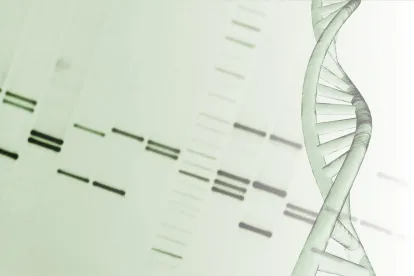The Patentability of Isolated DNA Will be Decided by the Supreme Court1
On November 30, 2012, the U.S. Supreme Court agreed to review the Federal Circuit decision in Association for Molecular Pathology v. Myriad Genetics, holding that isolated human genes are patent-eligible under 35 U.S.C. § 101. The question under review is whether human genes are patentable.
The Petitioners for review by the Supreme Court are a group of medical professionals, activist groups and patients, who assert that Myriad’s patents cover every naturally occurring version of the BRCA1 and BRCA2 genes associated with breast and ovarian cancer, including those containing mutations. The Petitioners argued that the patents inhibit scientific research involving the genes, prevent patients from accessing their own genetic information, allowed Myriad to dictate the cost of genetic testing, stopped other laboratories from creating and offering new and improved testing procedures and made it impossible to obtain second opinions that could better inform patients of their cancer risk.
The Petitioners argued that claims to isolated genes or DNA molecules should be patent ineligible under § 101 as violating long-established Supreme Court precedent that prohibits the patenting of products of nature and laws of nature. They argued that the claims to “isolated DNA” convey the natural order of nucleotides that serves as the blueprint for proteins, and that this blueprint is the essential characteristic of the DNA that remains the same before and after isolation. Thus, “isolated DNA” does not have any markedly different characteristics from that found in nature. In addition, the naturally-occurring coding relationship between the DNA and proteins is a law of nature, unchanged by “isolating” the DNA. They also argued that the broad preemptive effect of the Myriad patents is evidence that they claim laws and products of nature. They further argued that patents on isolated DNA violate the first amendment as they block scientific inquiry into the patented DNA.
In 2011, the Federal Circuit upheld the patent eligibility of isolated genes on the basis that the claimed isolated DNA molecules were man-made and the product of human ingenuity. According to the majority opinion, isolated DNA molecules are distinct from their natural existence as portions of larger entities, and their informational content is irrelevant to that fact.We will learn during this term of the Supreme Court whether claims to isolated DNA are patent eligible. However, this may not be the last word on the subject, as it is at least possible that congress will consider the issue should such claims be determined not patent eligible, especially in view of the potential for this decision to adversely affect the patentability of other isolated molecules including natural products such as antibiotics.
1 Robert W. Esmond, Ph.D. and Eric Steffe are directors at the Washington D.C. based firm Sterne, Kessler, Goldstein & Fox P.L.L.C. This alert is intended to be informative and should not be construed as legal advice for any specific fact situation. Opinions expressed herein are those of the authors and not necessarily the opinions of Sterne, Kessler, Goldstein & Fox P.L.L.C., or any of its clients. Readers should not act upon this information presented without consulting professional legal counsel.





 />i
/>i
